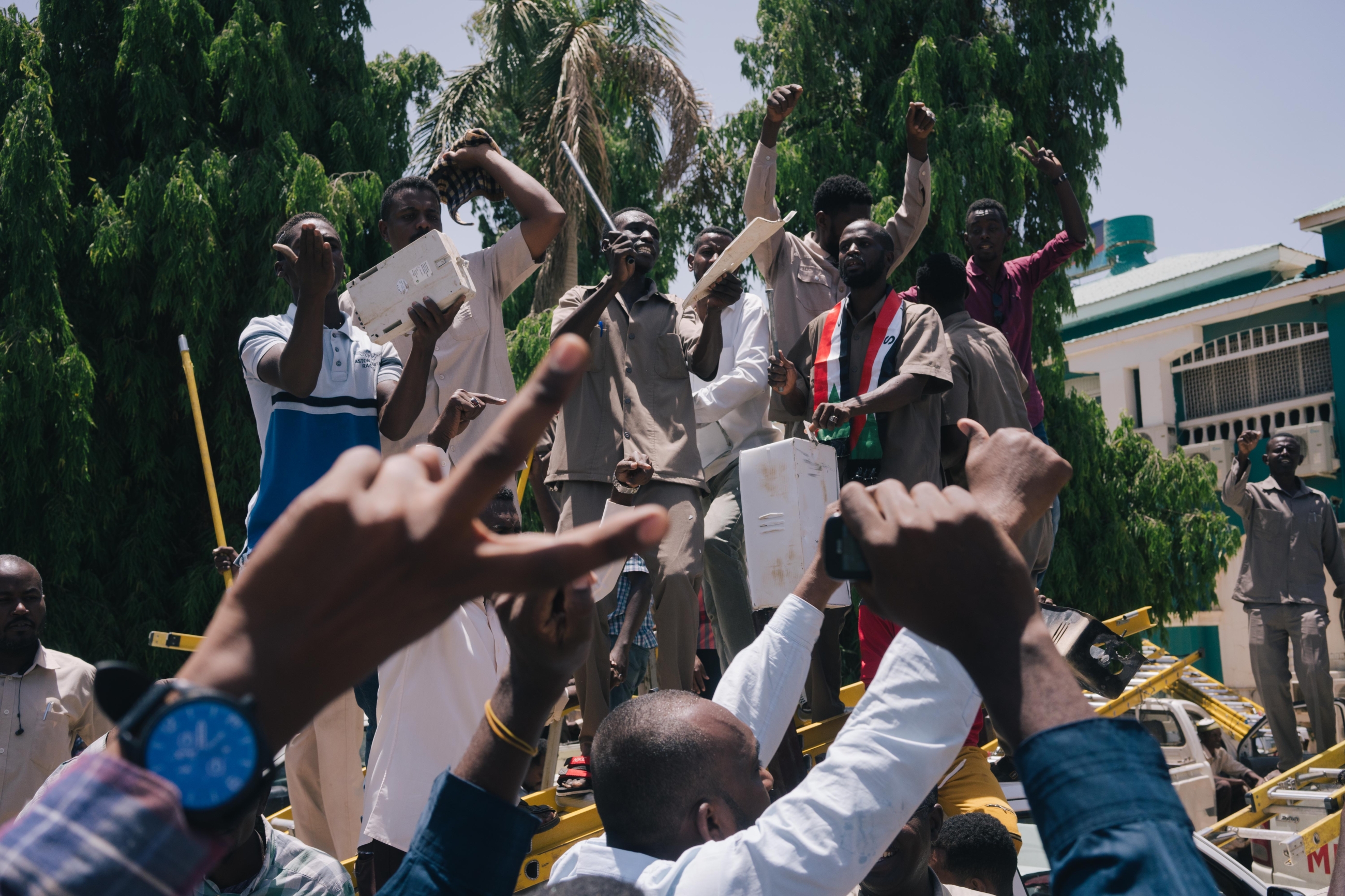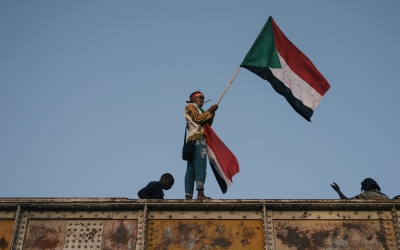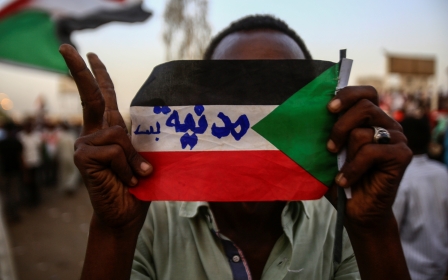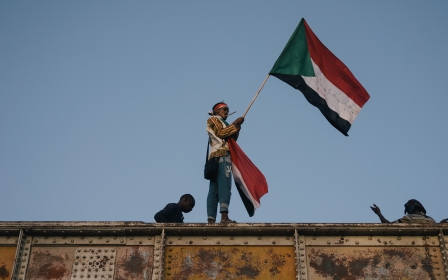Sudan: Protests spread as talks between army and opposition continue

Sudan's military-led ruling body and the opposition reached an agreement in renewed talks about a transition to civilian government on Monday, as pick-up trucks used by Sudan's various armed forces fanned out across Khartoum and blocked major roads amid rising tensions in the capital.
Lieutenant General Shams al-Din Kabbashi - the spokesman for the Transitional Military Council (TMC) created after the ousting of longtime ruler Omar al-Bashir - announced on Monday that an agreement had been reached with opposition groups regarding a political transition.
New MEE newsletter: Jerusalem Dispatch
Sign up to get the latest insights and analysis on Israel-Palestine, alongside Turkey Unpacked and other MEE newsletters
"We discussed the structure of the transitional authority and agreed on it completely, and we also agreed on the system of governance in the transitional period," Reuters quoted Kabbashi as saying, adding that the make-up of the transitional authority would be addressed during talks on Tuesday.
The Forces for the Declaration of Freedom and Change, the umbrella group of protest leaders negotiating with the military, confirmed that an accord had been reached with the TMC.
Meanwhile, Sudan's public prosecutor announced on Monday evening that Bashir and others were being charged with incitement and involvement in the killing of protesters, Reuters reported. Earlier this month, Bashir was already ordered to be interrogated over charges of money laundering and financing terrorism.
Protests that had been confined to a sit-in demanding the TMC hand over power have spread to other parts of the city in recent days to put pressure on the military.
The Rapid Support Forces paramilitary and police used tear gas against protesters who blocked the Mek Nimr bridge in Khartoum North.
Translation: Bahri, al-Mazad Street. Rapid Security Forces and police [allegedly shown beating protesters]
The Forces for the Declaration of Freedom and Change have called for protesters to increase pressure on the military council by disrupting traffic on major roads and the bridges that link various parts of Khartoum across the River Nile.
Four months of protest against Bashir culminated in the 6 April sit-in outside the military headquarters that ousted him. The sit-in remains in place more than a month later, with protesters demanding the generals who replaced him step aside as well.
After small clashes with protesters who had blocked the key Nile Street on Sunday, causing traffic around Khartoum, the military council said it was not trying to remove the sit-in but would not tolerate the protests spreading "chaos" through the city.
Protest leaders called last week for "civil disobedience" when the military rejected its proposals for a joint civilian-military body and on Monday announced plans to increase pressure on the military with road closures and strikes.
The Kenana Sugar Company's workers have been on strike for several days and there were other strikes by workers in the northern town of Atbara as well as by nurses and mining company workers.
Engineers for the Sudanese Electricity Transmission Company also protested after they became the target of public anger against electricity cuts that have been acutely felt during Ramadan.
Hundreds gathered outside the electricity company's offices, jumping onto the trucks used by the engineers and chanting the same revolutionary slogans that have spread through Sudan since the anti-government protests started in December 2018.
"Cut or no cuts, we stay here," they chanted, playing on the common taunt against Bashir and his successors: "Fall, or no fall, we stay here."
The electricity company workers said they have been attacked by members of the public as rumours circulated that the electricity cuts have been directed by the military council to wear out support for the protests.
A number of strikes have been called by workers at various companies in recent days, while smaller, more spontaneous protests are now visible throughout Khartoum on key roads and outside government offices.
Middle East Eye delivers independent and unrivalled coverage and analysis of the Middle East, North Africa and beyond. To learn more about republishing this content and the associated fees, please fill out this form. More about MEE can be found here.





